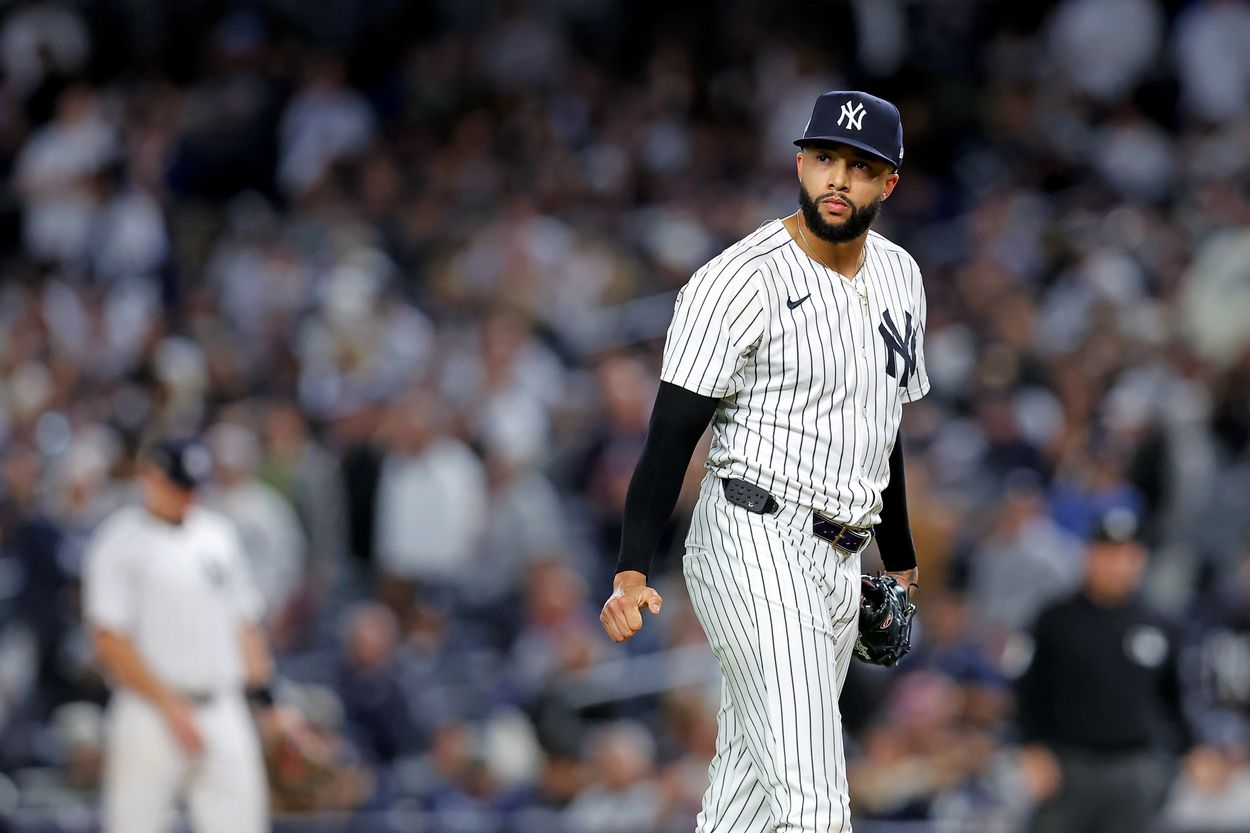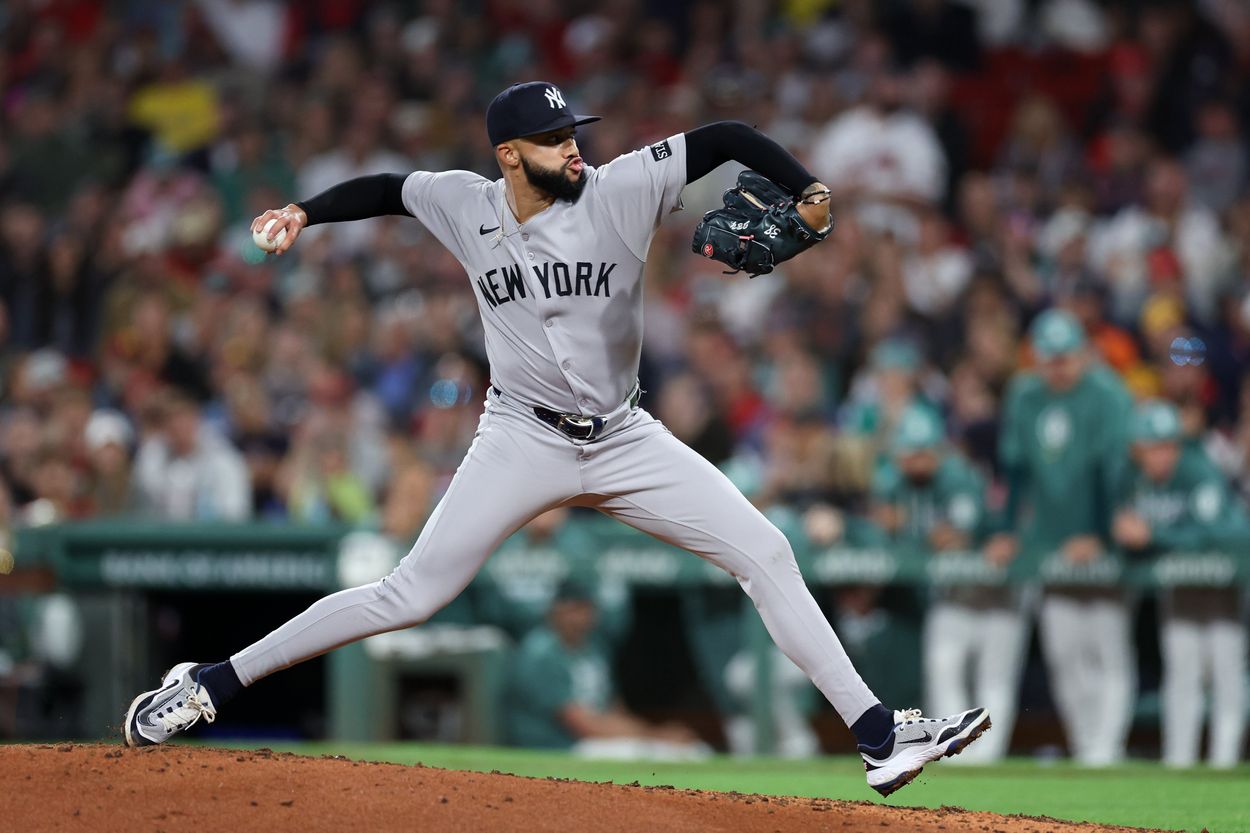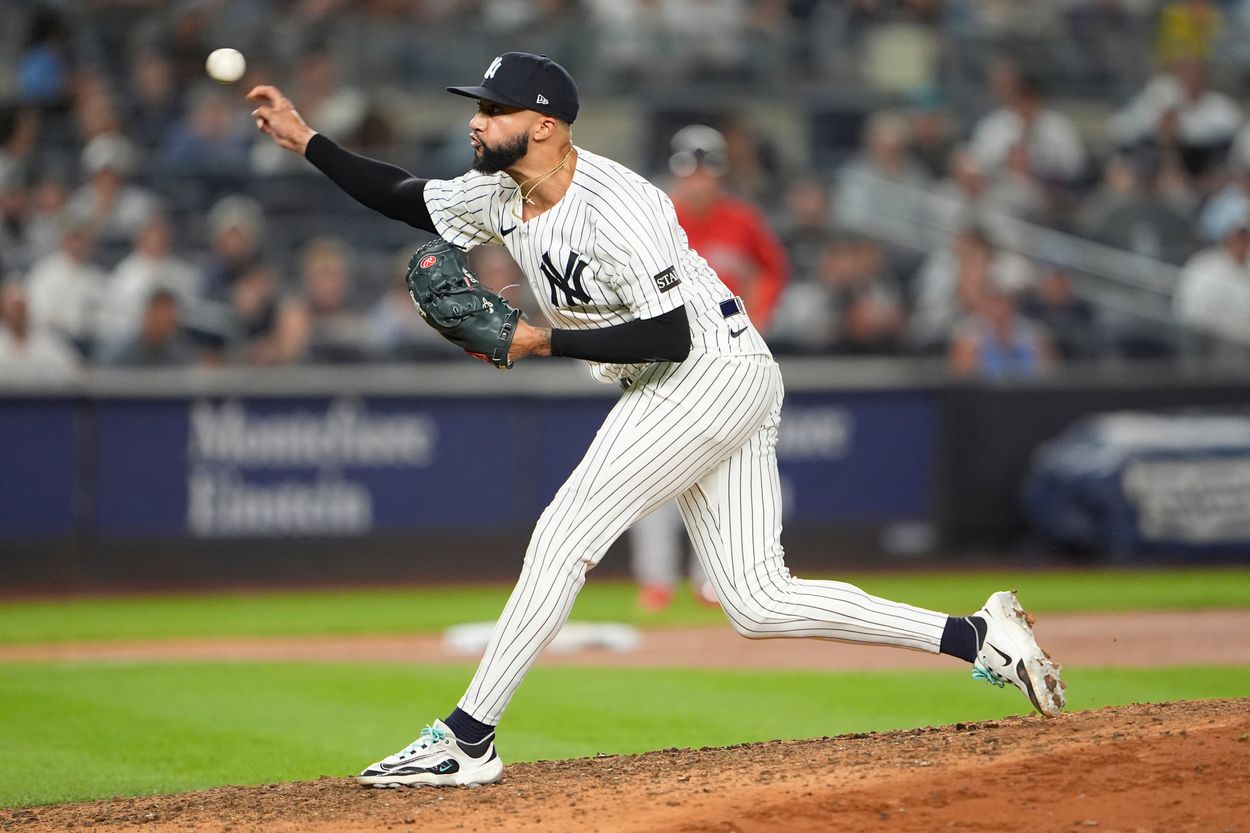
The New York Yankees have some tough financial decisions ahead this winter, and one of the more intriguing calls involves reliever Devin Williams. After an uneven 2025 campaign, the front office faces a choice: offer Williams a one-year qualifying offer worth around $21 million for the 2026 season or risk letting him walk for nothing.
That figure might sound steep for a relief pitcher coming off an inconsistent year, but context matters — and so does upside.
A season of peaks and valleys
Williams was one of the Yankees’ big midseason acquisitions, arriving from the Milwaukee Brewers in exchange for Nestor Cortes and infield prospect Caleb Durbin, who went on to become a solid contributor for Milwaukee. At the time, the Yankees were desperate to stabilize a bullpen that had worn down through injuries and overuse.

Early on, Williams struggled to look like the All-Star version of himself. His signature “Airbender” changeup failed to baffle hitters, and while his strikeout rate hovered near elite levels, it wasn’t enough. But as the season went on, command issues continued to plague him, leading to a stretch of rocky outings that inflated his ERA and he only managed to recover at the tail end.
By the end of the regular season, Williams finished with a respectable but not dominant line. His walk rate was higher than usual, and while he still flashed swing-and-miss stuff, he wasn’t the lights-out closer Yankees fans hoped for when the trade was made.
Fortunately, his dominant playoff performance showed the Yankees his best self is still in there somewhere.
Why the qualifying offer makes sense
Even with the inconsistency, Williams remains one of the most talented relievers in the game. When his mechanics are locked in, few pitchers can match his late movement or his ability to make hitters look foolish.
Given his volatility this season, though, the market might not be as strong for him as it once was. Teams are hesitant to hand long-term deals to relievers with command issues, and that could make a one-year qualifying offer worth around $21 million more appealing.
From the Yankees’ perspective, it’s a calculated risk. A one-year commitment gives them flexibility while keeping a proven arm in a bullpen that could lose multiple veterans this offseason. For Williams, accepting the QO could give him a chance to reestablish his value and test the market again next winter — this time with better momentum.
It’s a win-win scenario on paper: the Yankees get stability, and Williams gets a platform year to prove that his 2025 inconsistency was just a blip.

Betting on himself might be the right move
For Williams, taking the qualifying offer could be like resetting the table before a bigger meal. Instead of chasing a long-term deal at a discounted rate now, he could use one more season in New York to remind teams why he was once viewed as one of the best relievers in baseball.
If he dominates in 2026, he could hit free agency again at 32 with a much stronger case for a multi-year contract — relievers can be very effective into their late 30s. The Yankees have the money and the need to make this happen, and Williams, for all his ups and downs, still offers something few relievers can — pure, unteachable movement and the ability to change a game in one inning.
Both sides have something to gain from one more year together. The Yankees get a potential bullpen anchor, and Williams gets another shot to cash in at the level his talent deserves.
